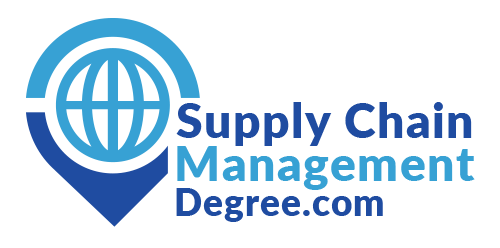
What the Supply Chain Industry Will Look Like in the Next Decade
The supply chain industry is on the brink of transformation, driven by technological advancements, shifting consumer behaviors, and global disruptions. As we stand at the threshold of a new decade, it’s essential to envision how the landscape of supply chain management will evolve in the coming years. In this blog, we explore the trends and innovations shaping the future of the supply chain industry and the implications for businesses worldwide.
Embracing Digitalization and Automation
In the next decade, digitalization and automation will continue to revolutionize the supply chain landscape, optimizing processes, reducing costs, and enhancing efficiency. From robotic process automation (RPA) and artificial intelligence (AI) to Internet of Things (IoT) devices and blockchain technology, businesses will increasingly leverage advanced technologies to streamline operations, improve visibility, and mitigate risks across the supply chain.
Resilience and Risk Management
The events of the past decade, including natural disasters, geopolitical tensions, and global pandemics, have underscored the importance of resilience and risk management in supply chain operations. In the next decade, businesses will prioritize building agile and adaptive supply chains capable of responding swiftly to disruptions while diversifying sourcing strategies, enhancing supply chain visibility, and investing in predictive analytics to anticipate and mitigate risks proactively.
Sustainability and Ethical Sourcing
As environmental concerns and social responsibility become increasingly paramount, sustainability and ethical sourcing will emerge as central pillars of supply chain management in the next decade. Businesses will adopt sustainable practices, such as eco-friendly packaging, renewable energy adoption, and carbon footprint reduction initiatives, while ensuring transparency and accountability throughout their supply chains to meet evolving consumer demands and regulatory requirements.
Supply Chain Collaboration and Ecosystems
In the next decade, supply chain collaboration and ecosystems will become more prevalent as businesses seek to foster closer partnerships with suppliers, vendors, and logistics providers to drive innovation, enhance agility, and create value across the supply chain. Collaborative platforms, digital marketplaces, and shared data networks will facilitate seamless communication, collaboration, and coordination among ecosystem partners, enabling end-to-end visibility and optimization.
Customer-Centricity and Personalization
In an era of heightened customer expectations, supply chains will evolve to become more customer-centric and personalized in the next decade. Businesses will leverage data analytics, AI-driven forecasting, and demand sensing technologies to anticipate customer preferences, tailor product offerings, and deliver seamless omnichannel experiences. Supply chains will increasingly focus on speed, flexibility, and responsiveness to meet the evolving needs of discerning consumers.
Talent Development and Upskilling
As supply chain operations become increasingly complex and technology-driven, investing in talent development and upskilling will be essential for businesses to thrive in the next decade. Organizations will prioritize recruiting and retaining skilled professionals with expertise in data analytics, digital technologies, and supply chain management while investing in training programs, mentorship initiatives, and cross-functional collaborations to nurture a diverse and agile workforce.
Navigating the Future of Supply Chain Management
The supply chain industry is poised for profound transformation in the next decade, driven by digitalization, sustainability, resilience, and customer-centricity. Businesses that embrace technological innovations, adopt agile and adaptive strategies, prioritize sustainability and ethical sourcing, foster collaboration and ecosystem partnerships, and invest in talent development will be well-positioned to navigate the challenges and opportunities that lie ahead.
As we embark on this journey into the future of supply chain management, embracing innovation, agility, and sustainability will be key to driving value creation, fostering resilience, and delivering exceptional customer experiences in the dynamic and interconnected global marketplace of tomorrow.


